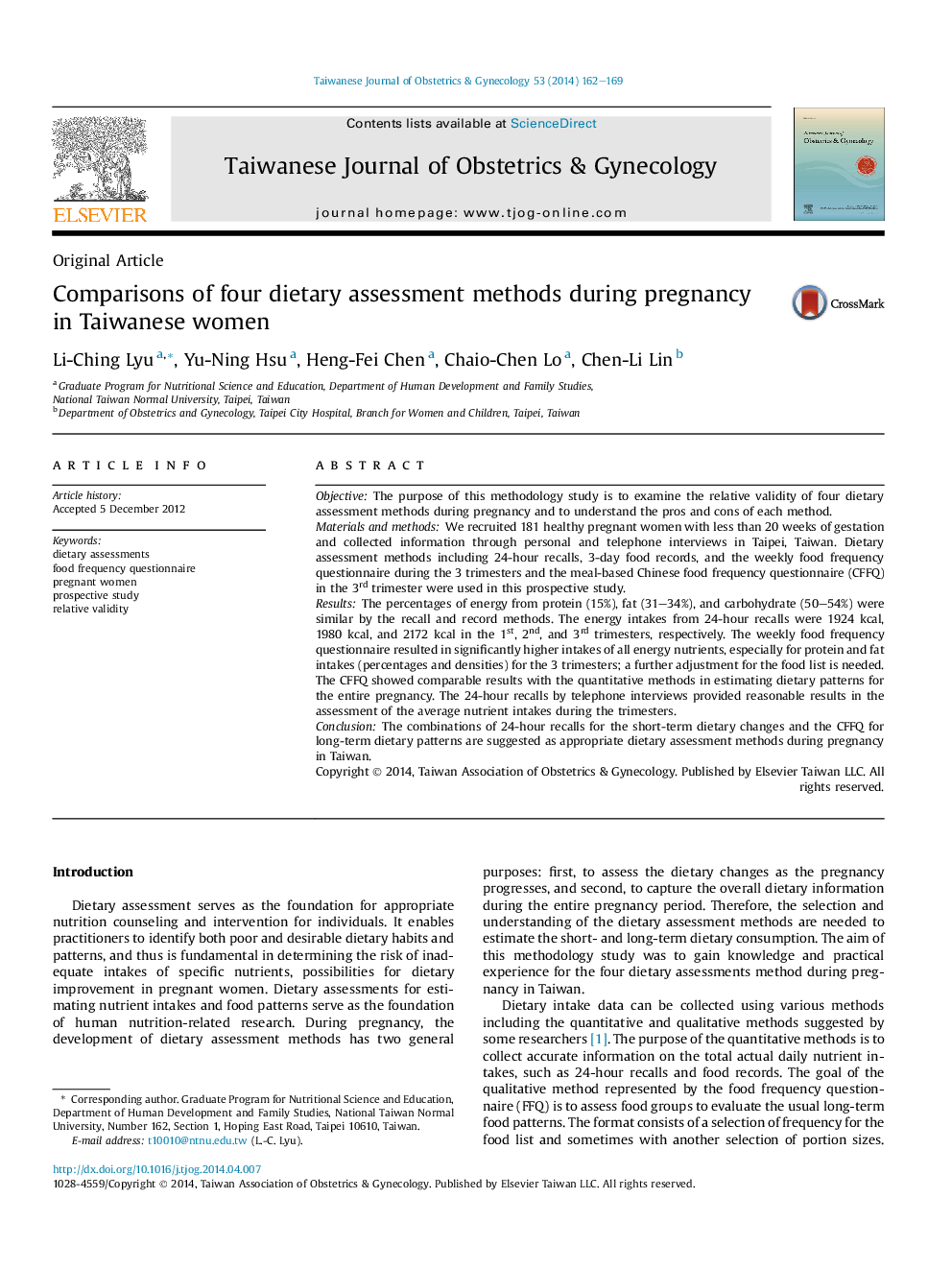| Article ID | Journal | Published Year | Pages | File Type |
|---|---|---|---|---|
| 3975119 | Taiwanese Journal of Obstetrics and Gynecology | 2014 | 8 Pages |
ObjectiveThe purpose of this methodology study is to examine the relative validity of four dietary assessment methods during pregnancy and to understand the pros and cons of each method.Materials and methodsWe recruited 181 healthy pregnant women with less than 20 weeks of gestation and collected information through personal and telephone interviews in Taipei, Taiwan. Dietary assessment methods including 24-hour recalls, 3-day food records, and the weekly food frequency questionnaire during the 3 trimesters and the meal-based Chinese food frequency questionnaire (CFFQ) in the 3rd trimester were used in this prospective study.ResultsThe percentages of energy from protein (15%), fat (31–34%), and carbohydrate (50–54%) were similar by the recall and record methods. The energy intakes from 24-hour recalls were 1924 kcal, 1980 kcal, and 2172 kcal in the 1st, 2nd, and 3rd trimesters, respectively. The weekly food frequency questionnaire resulted in significantly higher intakes of all energy nutrients, especially for protein and fat intakes (percentages and densities) for the 3 trimesters; a further adjustment for the food list is needed. The CFFQ showed comparable results with the quantitative methods in estimating dietary patterns for the entire pregnancy. The 24-hour recalls by telephone interviews provided reasonable results in the assessment of the average nutrient intakes during the trimesters.ConclusionThe combinations of 24-hour recalls for the short-term dietary changes and the CFFQ for long-term dietary patterns are suggested as appropriate dietary assessment methods during pregnancy in Taiwan.
